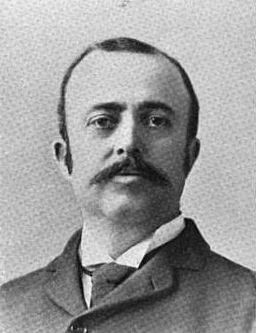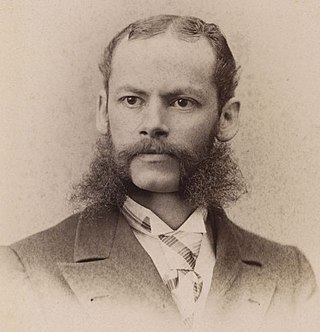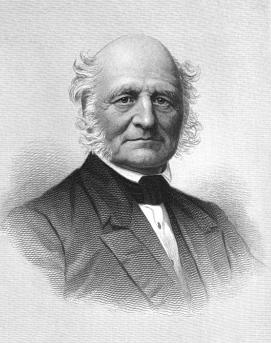
The 1912–13 United States Senate elections were held on various dates in various states. They were the last U.S. Senate elections before the ratification of the Seventeenth Amendment in 1913, establishing direct elections for all Senate seats. Senators had been primarily chosen by state legislatures. Senators were elected over a wide range of time throughout 1912 and 1913, and a seat may have been filled months late or remained vacant due to legislative deadlock. Some states elected their senators directly even before passage of Seventeenth Amendment. Oregon pioneered direct election and experimented with different measures over several years until it succeeded in 1907. Soon after, Nebraska followed suit and laid the foundation for other states to adopt measures reflecting the people's will. By 1912, as many as 29 states elected senators either as nominees of their party's primary or in conjunction with a general election.

The 1852–53 United States Senate elections were held on various dates in various states, coinciding with the 1852 presidential election. As these U.S. Senate elections were prior to the ratification of the Seventeenth Amendment in 1913, senators were chosen by state legislatures. Senators were elected over a wide range of time throughout 1852 and 1853, and a seat may have been filled months late or remained vacant due to legislative deadlock. In these elections, terms were up for the senators in Class 2.
The Ministry of Planning and Finance administers Burma's monetary, fiscal policies and national planning.

The 119th Massachusetts General Court, consisting of the Massachusetts Senate and the Massachusetts House of Representatives, met in 1898 during the governorship of Roger Wolcott. George Edwin Smith served as president of the Senate and John L. Bates served as speaker of the House.

The 120th Massachusetts General Court, consisting of the Massachusetts Senate and the Massachusetts House of Representatives, met in 1899 during the governorship of Roger Wolcott. George Edwin Smith served as president of the Senate and John L. Bates served as speaker of the House.

The 113th Massachusetts General Court, consisting of the Massachusetts Senate and the Massachusetts House of Representatives, met in 1892 during the governorship of William E. Russell. Alfred S. Pinkerton served as president of the Senate and William Emerson Barrett served as speaker of the House.

The 99th Massachusetts General Court, consisting of the Massachusetts Senate and the Massachusetts House of Representatives, met in 1878 during the governorship of Alexander H. Rice. John B. D. Cogswell served as president of the Senate and John Davis Long served as speaker of the House.
The 68th Massachusetts General Court, consisting of the Massachusetts Senate and the Massachusetts House of Representatives, met in 1847 during the governorship of George N. Briggs. William B. Calhoun served as president of the Senate and Ebenezer Bradbury served as speaker of the House.

The 71st Massachusetts General Court, consisting of the Massachusetts Senate and the Massachusetts House of Representatives, met in 1850 during the governorship of George N. Briggs. Marshall Pinckney Wilder served as president of the Senate and Ensign H. Kellogg served as speaker of the House.
The 59th Massachusetts General Court, consisting of the Massachusetts Senate and the Massachusetts House of Representatives, met in 1838 during the governorship of Edward Everett. Myron Lawrence served as president of the Senate and Robert Charles Winthrop served as speaker of the House.
The 69th Massachusetts General Court, consisting of the Massachusetts Senate and the Massachusetts House of Representatives, met in 1848 during the governorship of George N. Briggs. Zeno Scudder served as president of the Senate and Francis Crowninshield served as speaker of the House.
The 60th Massachusetts General Court, consisting of the Massachusetts Senate and the Massachusetts House of Representatives, met in 1839 during the governorship of Edward Everett. Myron Lawrence served as president of the Senate and Robert Charles Winthrop served as speaker of the House.
The 63rd Massachusetts General Court, consisting of the Massachusetts Senate and the Massachusetts House of Representatives, met in 1842 during the governorship of John Davis. Josiah Quincy Jr. served as president of the Senate and Thomas H. Kinnicutt served as speaker of the House.
The 64th Massachusetts General Court, consisting of the Massachusetts Senate and the Massachusetts House of Representatives, met in 1843 during the governorship of Marcus Morton. Phineas W. Leland and Frederick Robinson served as presidents of the Senate and Daniel P. King served as speaker of the House.

The 72nd Massachusetts General Court, consisting of the Massachusetts Senate and the Massachusetts House of Representatives, met in 1851 during the governorship of George S. Boutwell. Henry Wilson served as president of the Senate and Nathaniel Prentice Banks served as speaker of the House.







